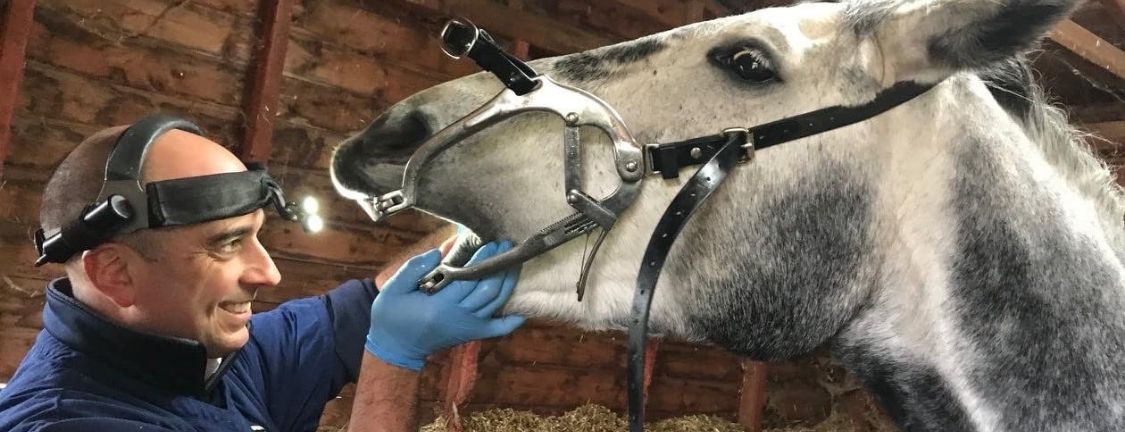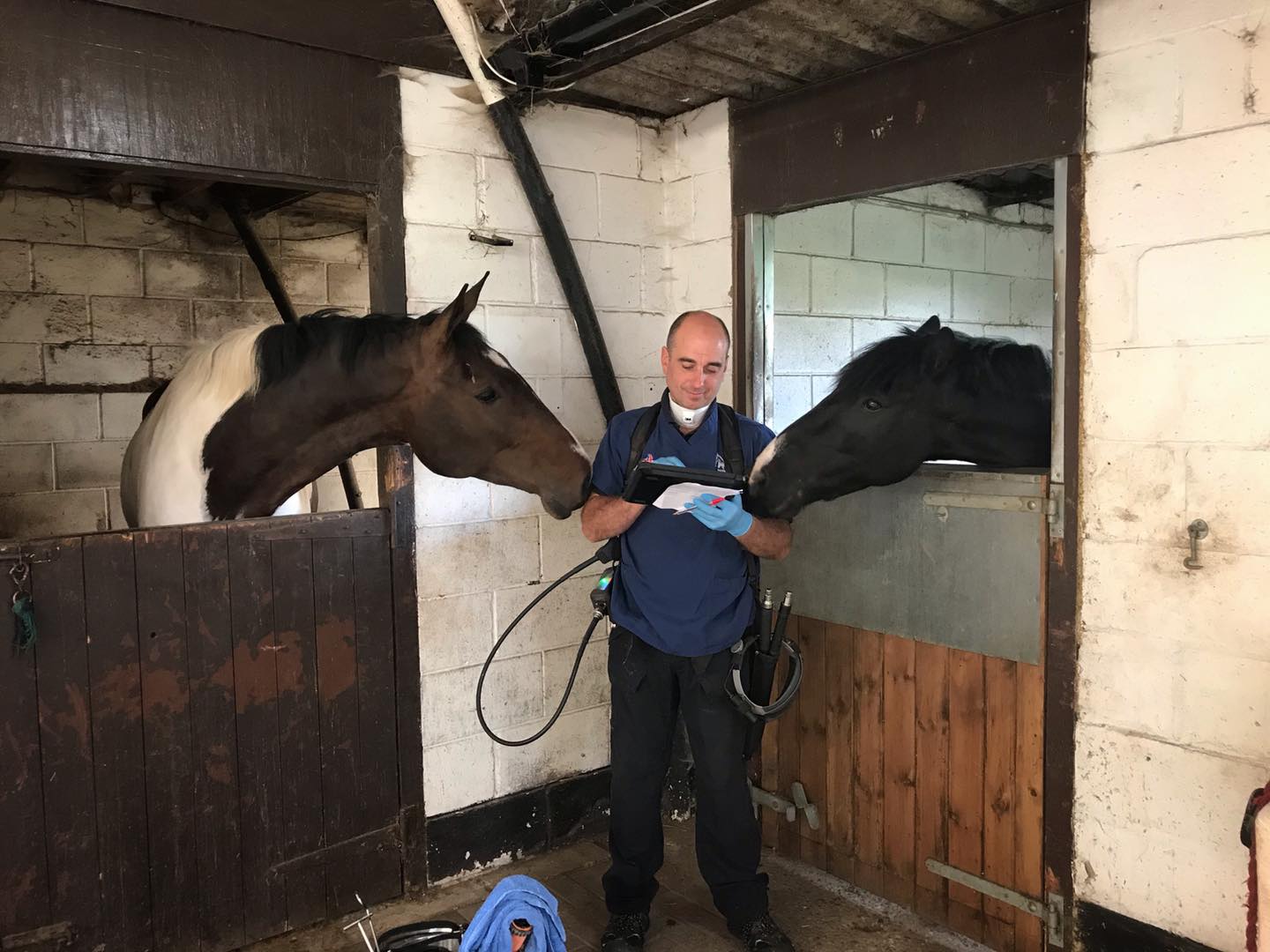
Open wide. Do horses really need to see an equine dentist? We flossed and brushed before we had a virtual catch up with equine dentist Martin Brookes, who is a full member of the British Association of Equine Dental Technicians and we asked Martin to tell us what to look for when a horse needs a visit the equine dentist.
Signs your horse needs to see an equine dentist
In most cases, one or more of the following symptoms become evident if your horse needs to see an equine dentist:
1) Change in ridden performance
- Your horse will start to hang on to one rein and will be less happy to take the contact on the other rein
- Your horse will open its mouth more than usual
- Your horse will start throwing up its head when you ask for contact
- Generally, when your horse shows one or more of these symptoms there is a mechanical block in the teeth – the teeth are not able to move backward and forwards or side to side.
2) Change in eating habits

- Your horse will leave the longer strands of hay but eat the shorter strands – known as ‘quidding’
- Your horse eats its soft feed, but not the hay
- Your horse stops eating its hay & feed
3) Smelly Breath
- You notice a bad smell when they're eating, when they open their mouth, when you tack them up, and after you have taken out the bit. This is due to a build-up of bacteria in the mouth when feed isn’t chewed properly.
How often should my horse see a dentist?
Equine dentist Martin’s top tip:
All horses should have their teeth checked at least every 12 months. However, depending on their lifestyle, this may well need to be reduced to perhaps every six months. For instance, a horse that is being ridden regularly and is stabled every night may well be enjoying a diet that includes a lot of soft feed. This lifestyle is likely to need more regular checks, while horses living out all year on grass and being ridden less should be fine on a 12-monthly routine.
And finally, before you part with your hard-earned cash, make sure your dentist is registered with either the British Association of Equine Dental Technicians or The Worldwide Association of Equine Dentistry.
Thank you to Martin Brookes and his team for this information on when your horse needs to see an Equine Dentist.
About Equine Dentist Martin Brookes:
Martin is based in Sheffield, England, with his wife Lynsey, son Samuel and daughter Robyn. After completing a degree in Mechanical Engineering at the University of Sheffield he attended the Academy of Equine Dentistry, USA in 2002. He certified in 2003 and attends for at least ten days each year to complete his professional career development. Martin passed the DEFRA/RCVS approved exam in the UK in 2006 and represented the WWAED (UK) on the Veterinary Activities Committee for LANTRA in developing the National Occupation Standards for equine dentistry. He is currently a member of BAEDT.
Martin has ridden since he was five years old in a variety of disciplines, being a member of local riding clubs and Rockwood Harriers Pony Club. The highlight so far was representing the UK Polocrosse team in the 2007 World Cup in Australia, coming second. He currently plays polo at Leadenham Polo Club.
